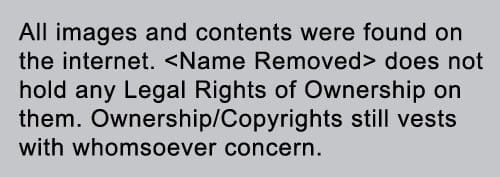Thriving Industry of Facebook Like Farms
I’d love to say I invented the phrase Like Farm, but it’s entirely possible I read it somewhere before as a brief search turned up other articles on the growing phenomenon. For awhile now, I’ve been watching my own news feed fill up with random images and slightly saccharine quotes. It’s been one of those things that ebbs and flows, but recently the flow has seemed stronger? Part of my recognizing this issue is an ongoing angst with how much of it is simply stolen content. I’m sure many of my friends have no idea that the pretty landscape they’re sharing or the cute kitten is an unattributed and unapproved use of someone’s copyrighted material. It’s become so common on the web, even some artists and photographers shrug their shoulders and move on.
But my angst however tangible goes beyond that. It’s the fact that so much of this material is coming not from a bored kid sitting at home but someone out to profit from it. And the more Facebook squelches the volume on Facebook pages to try to combat this issue, the more the people that are gaming the system gain strength as many of them have become the master manipulators of people’s emotions. How many images do you see in your news feed on a given day with a note that most people won’t have the courage to share this? Or share this if you love your child, mother, brother, aunt, uncle, cousin, bedbug… Well, you get the point. They play on human emotions, love for another, our patriotism, the entire spectrum of what makes people tick. Share me, like me, love me. And it works! Every day I encounter another junk page with hundreds of thousands of likes, posts that have been shared and re-shared and liked out the wazoo.

The above screen snippet comes from the latest one of these pages I ran across today. Founded less than a year ago and liked by over 800,000 people (I know the chart above only goes to 300k, but they hadn’t updated it). This page has experienced the kind of growth very few reputable Facebook pages will ever know. The thing is I could easily come up with a dozen similar pages all sharing the same kind of content and hardly ever original. The people running these pages watch for engaging content and then re-use it ad infinitum. If you scroll through their Timeline, you’ll start seeing a pattern. They share the same content spaced evenly enough to not be too obvious, but still on infinite play.

What motivates these people you may wonder? Surely they can’t be putting all this effort into a lark? There may be a rare few out there who are just doing it for giggles, but most I encounter are following the same pattern. Grow a page to thousands and thousands of people and then quietly begin slipping in other content. It might be affiliate links to Amazon or links to a site of their own. Never fear, those sites have advertising, too! It may still seem like a lot of work, but consider if you’re the page above with 800,000 followers and growing. You share one or two links to something commercial every day and you get a few hundred people making purchases. Just that, a few hundred sales and you get a cut, but every day, that adds up to making a living in your bathrobe off other people’s content. And if you’re serving up links to Amazon or some other affiliate, you didn’t even have to pay for a web-host. You let Facebook host your (stolen) content and you let an affiliate handle the sale. It really is a winning formula that so far has no end in sight. There’s no real way to report these pages. As far as the stolen content goes, only the copyright owner is allowed to register a complaint. And even if the page has more or less confessed in their description, there’s no way to contact Facebook and explain the obvious.

Can you imagine a restaurant with a disclaimer that all the art decorating their walls was “found” in the shop around the corner and removed without permission or payment? Or a note that I had found all the articles on my site on the Associated Press and copied them? This is the same thing!
I’d had this subject brewing in the back of my mind for awhile, but what finally pushed me over the edge was searching an SEO question I had and stumbling down a rabbit hole to the dark side of the net. I found a forum filled with discussions about methods for creating these types of pages, growing them at astronomical speeds, how to monetize them, etc. It’s not that I didn’t have an inkling what was going on before, but having it in black and white in front of me. People exchanging ideas for manipulating Facebook and all at the detriment to the rest of us. It’s kind of discouraging I have to admit to see the regurgitated detritus of the web get thousands upon thousands of shares and likes while some wonderful artists are sharing their own material and lucky to get just a tiny bit of attention and notice. This is the problem with formulas such as Facebook uses that assumes a simple correlation between engagement and quality content. And it’s the reason I find myself on there less and less lately. And I hate to admit there’s a part of me that remains unconvinced that the people behind Facebook care. Thousands of eyes on content with their ads around it. Why should they care whether that content has any meaning or legitimacy? I’d love to be proved wrong and for Facebook to begin looking seriously at pages with fast growth and massive following. They can’t be that hard to find. I can certainly find them and without access to the data they have.
Absent that, I have some small hope that maybe the users themselves will catch on to what’s happening. Before you share that picture that tells you no one will have the courage to share it, take a look at where it originated. Does the shadowy page or person who shared it share the same type of material on a cycle? Before you share that sunset that begs you to share and like it, do you see any information about who actually took it? Simply question the motives behind the content you’re liking. Otherwise, you’re simply another cow on the like-farm…
If I could pick one thing to go viral right now, it wouldn’t be one of my own pictures, it would be this article. So, please consider sharing this link with your friends and asking them to do the same!
Addendum: Since posting this, it’s passed a lot of eyes in the past few days. I sent a copy to the Editors at Petapixel hoping that someone might write an article for their site and a larger audience would see it. I hadn’t imagined they’d have an interest in re-printing mine. My personal blog is allowed to be a little rough by virtue of its purpose. It’s mainly my soapbox. Knowing more eyes would see it, I asked if I could write a polished version first. That version of this article is now live on Petapixel!
Like Farmers Profiting by Hosting Stolen Photos on Facebook


Thanks Mark – shared!
It would be nice if people like Facebook didn’t just strip EXIF data!
There are too many sites that strip that data when creating the version they display (i.e. lower res/smaller) version. I agree, I wish they would all keep the EXIF data if it exists. It would definitely help. I don’t know that it would entirely stop people from re-using it, but unless they went to the effort to remove it, the data would be there. Not only would it be nice if they kept it, it would be nice if they all made it available to the viewer. If one of my images appeared on the Super Happy Picture Sharing Facebook page, I’d like the user to be able to hover it and see my contact details. Yes, I am a dreamer. 🙂
I’m glad to read that someone has noticed.The same “friends” who share frustration that I”share” too much about my art business, share these like-farm photos constantly. It’s amazing to me how happy people are to share content for complete strangers and yet annoyed by legitimate businesses of their own family and friends.